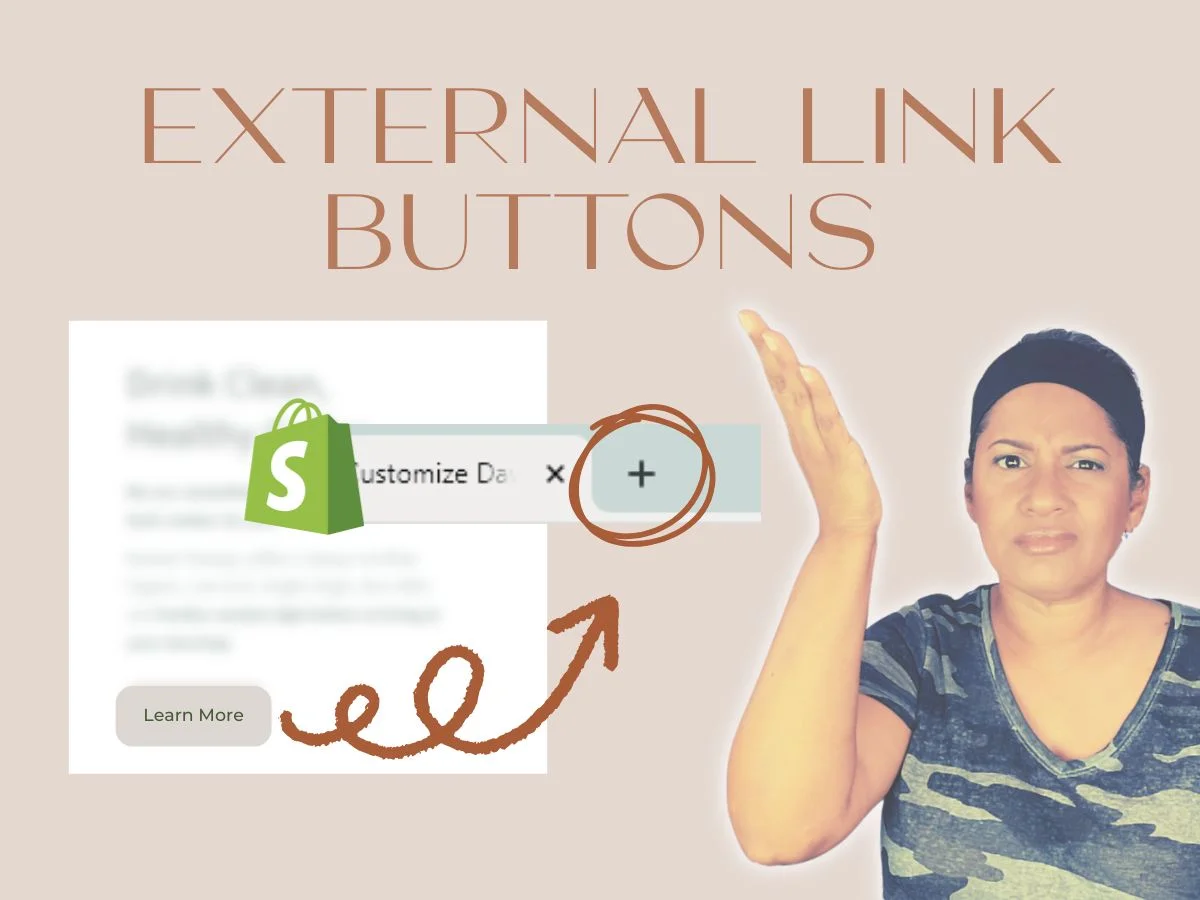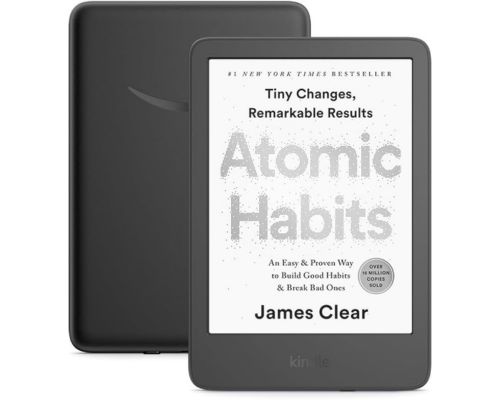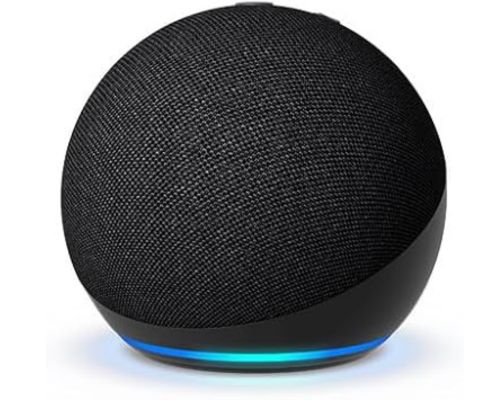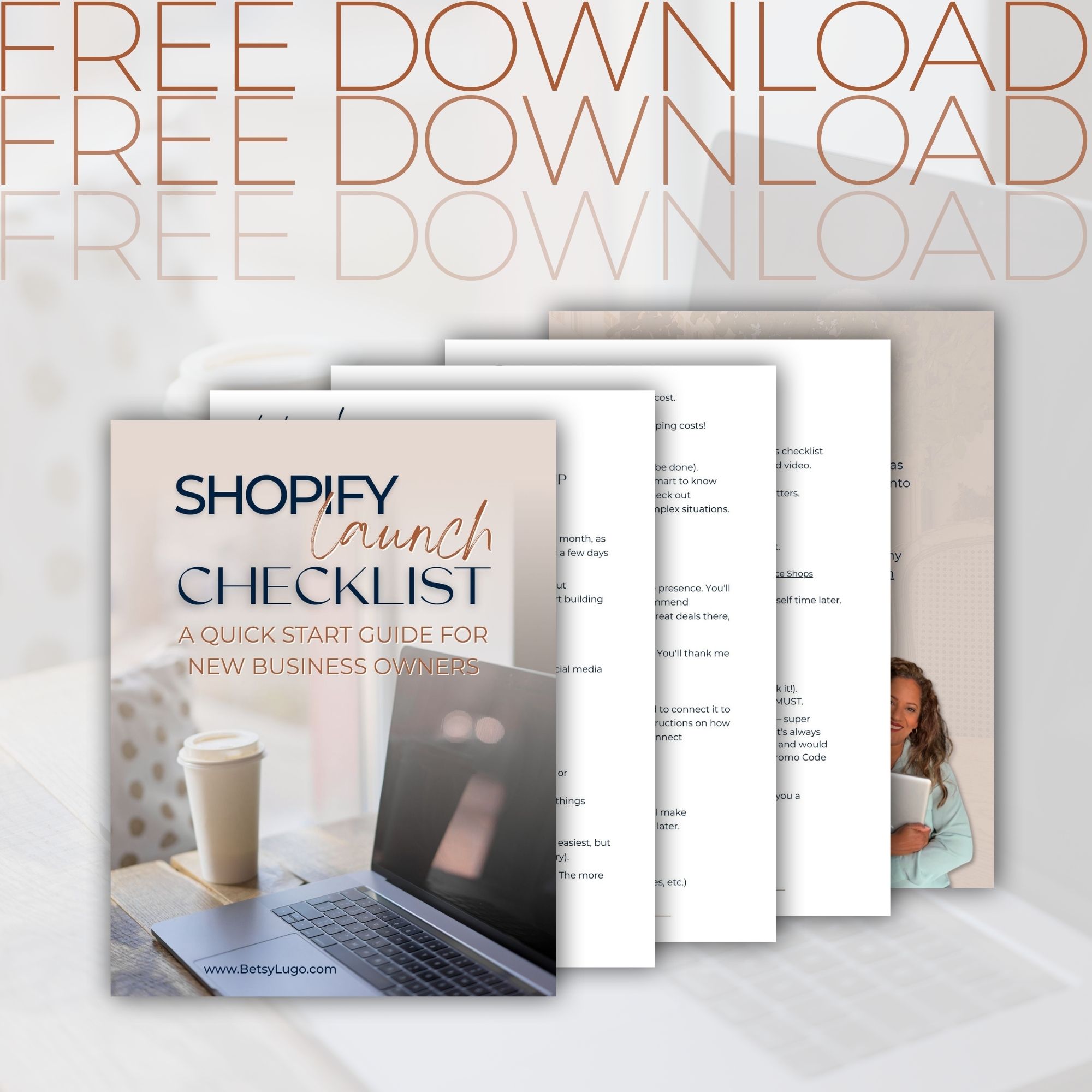Today, I’m dropping a POWERFUL concept that can completely change your online store’s performance: search intent.
If you’re wearing ALL the hats in your business (I see you, superstar! 👑), understanding search intent is the strategy you’ve been looking for. It’s the difference between getting random visitors and attracting READY-TO-BUY customers.
So What Exactly Is Search Intent? 🤔
Search intent is the REAL reason why someone does an online search. It goes WAY deeper than just the keywords they type – it’s about the PURPOSE behind their search.
Think about it: when someone searches “handmade soy candles,” are they:
- Looking to buy one RIGHT NOW?
- Researching different types before making a decision?
- Just curious about how they’re made?
Each of these scenarios represents a different search intent, and each requires a different approach to convert that visitor into a customer!
As Brian Dean of Backlinko explains, understanding search intent is no longer optional – it’s the foundation of modern SEO success.
Why Most E-commerce Stores Are Leaving SERIOUS Money On The Table
Here’s the truth that nobody is talking about: most small e-commerce businesses focus on just getting traffic, not on getting the RIGHT traffic.
When you align your website content with how customers actually search, you’ll:
- Attract more QUALIFIED traffic (no more time-wasters!)
- SLASH bounce rates (goodbye, one-and-done visitors!)
- BOOST conversion rates (hello, sales!)
- CLIMB those SEO rankings (without paying for ads)
Story Time: A Real-Life Search Intent Story
Let me share a quick story about a client I worked with recently (we’ll call her Betsy lol).
Betsy launched her handmade candle shop in 2024. She invested in GORGEOUS product photography and wrote detailed descriptions about each candle’s ingredients and manufacturing process. Her site is beautiful!
But there was a problem – she was getting decent traffic but hardly ANY sales.
When we looked at her Google analytics, we discovered something super interesting: visitors were landing on her site after searching phrases like “how to choose scented candles” and “best candles for sensitive people,” but her website wasn’t answering these questions AT ALL!
Betsy was missing a HUGE opportunity to address her visitors’ search intent. So we created a strategy for Q2, she will work on:
- A simple buyer’s guide to address a search intent like “How to Choose the Perfect Scented Candle”
- Add a FAQ section addressing concerns about candle ingredients and scents
- Write a blog posts targeting specific customer questions
I hope to share the results with you all soon! But I will go out on a limb and say she will…
- Increase her organic traffic
- Increase time spent on her site
- And increase conversion
All because she will create content that will match what her customers were ACTUALLY searching for! 🎉
The 4 Types of Search Intent
1. Informational Intent ℹ️
What it is: These are customers seeking knowledge. They’re using phrases like “how to choose running shoes” or “best fabric for sensitive skin.”
Action Plan: Create buying guides, FAQ pages, and educational blog posts that position you as an EXPERT in your niche.
Example: If you sell skincare products, create a comprehensive guide on “How to Build a Skincare Routine for Your Skin Type” or “The Complete Guide to Understanding Skincare Ingredients.”
2. Navigational Intent 🧭
What it is: These searchers are looking for a specific brand or website. They’re typing in “Nike running shoes” or “your store name.”
Action Plan: Ensure your brand terms rank well and optimize your site navigation so customers can EASILY find what they’re looking for.
Example: Make sure your About page, Contact page, and main product categories are super easy to find. If someone searches for “[Your Brand] return policy,” make sure that page exists!
3. Commercial Intent 🔍
What it is: These potential customers are in research mode. They’re using terms like “affordable laptops” or “compare wireless headphones.”
Action Plan: Create comparison pages, detailed product reviews, and have customer testimonials on product pages to help these researchers make CONFIDENT decisions.
Example: If you sell coffee makers, create content like “Drip vs. French Press: Which Coffee Maker Is Right For You?” or “The 5 BEST Affordable Coffee Makers for Small Kitchens.”
4. Transactional Intent 💰
What it is: These are your READY-TO-BUY customers using terms like “buy iPhone 15 case” or “best handmade candles shop.”
Action Plan: Optimize your product pages with clear calls-to-action, buttons that STAND OUT, and streamlined checkout processes with accelerated checkout.
Example: For product pages, use action-oriented headlines like “Shop Our Bestselling Handmade Candles” and make sure your “Add to Cart” and “Buy Now” buttons are impossible to miss!
Weekly emails for eCommerce shop owners!
Tips, Tricks & Resources to Design, Maintain, and Grow Your eCommerce Store.
How to Identify Search Intent Like a PRO (No Tech Skills Required!)
Ready for a super simple hack to understand the search intent behind ANY keyword? Here we go friend:
- Google it yourself! Open an incognito window and type the keyword into Google and see what shows up on page one.
- Analyze the results:
- Seeing mostly blog posts and guides? That’s informational intent.
- Seeing mainly product category pages? That’s commercial intent.
- Seeing mostly product pages with “buy now” buttons? That’s transactional intent.
- Look at the features Google shows: Are there FAQ sections? Featured snippets? Shopping results? These give you HUGE clues about what Google thinks users want.
REAL Examples of Search Intent in Action for Your E-commerce Store
Let’s break down how to create content for different search intents using a fictional online plant shop as our example:
Informational Intent
Keyword: “how to care for fiddle leaf fig”
Content to create: A detailed care guide blog post OR a section on the product page with watering, light, and soil tips.
Why it works: Establishes you as an expert and builds trust with potential plant parents.
Commercial Intent
Keyword: “best low light indoor plants”
Content to create: A curated collection page featuring your best low-light plants with comparison factors.
Why it works: Helps customers in research mode make decisions while showcasing your products.
Transactional Intent
Keyword: “buy monstera deliciosa plant online”
Content to create: A product page optimized with clear pricing, shipping info, and care basics.
Why it works: Removes all barriers to purchase for ready-to-buy customers.
The Search Intent Audit: 5 Steps to TRANSFORM Your Website This Week
Want to start optimizing your site for search intent RIGHT NOW? Follow these five simple steps:
- Check your Analytics: Look at your top landing pages and the search terms bringing visitors there
- Identify the intent mismatch: Are people searching for guides but landing on product pages? Or vice versa?
- Prioritize your high-traffic pages: Start with the pages getting the most visitors
- Reorganize your content: Make sure each page clearly addresses the main search intent
- Add secondary content: For product pages, add some informational content (like care guides, size charts) to satisfy information seekers
Common Search Intent MISTAKES (And How to Avoid Them!)
Mistake #1: Creating “one size fits all” content
Fix: Create separate content pieces for different intents – don’t try to make one page do all the things!
Mistake #2: Ignoring informational intent
Fix: Remember that informational content brings in future customers who aren’t ready to buy yet – they’re building trust with you!
Mistake #3: Focusing only on high-volume keywords
Fix: Long-tail, specific keywords often have higher conversion rates even with lower volume!
The EASIEST Way to Get Started with Search Intent Today
If you’re feeling overwhelmed (I get it, you’re already wearing ALL the hats!), here’s my super simple process to get started:
- Pick your 3 best-selling products
- For each product, create THREE pieces of content:
- One informational piece (how-to guide or tutorial)
- One commercial piece (comparison or “best of” collection)
- One optimized transactional product page
- Promote each piece where your customers are hanging out
- Track which content brings in the most traffic AND conversions
- Rinse and repeat for your next best sellers!
Need Help Implementing This Strategy? I’ve Got You!
Understanding search intent is one thing, actually implementing it on your website is another challenge entirely! If you’re:
- Struggling to find time to create all this content
- Not sure how to optimize your existing pages
- Ready to take your e-commerce site to the NEXT LEVEL
I’d love to help! As an e-commerce website designer who GETS the challenges of bootstrapping entrepreneurs. Whether you need a full website overhaul or just some strategic tweaks to improve your search intent optimization, I’m here for you!
Let’s Connect!
Ready to stop leaving money on the table and start attracting customers who are READY to buy? Let’s chat about how we can transform your website to align perfectly with search intent!
BOOK A FREE STRATEGY CALL → Let’s talk about YOUR specific search intent opportunities
Or drop me a comment below with your biggest search intent question!
Remember: Understanding search intent isn’t just about SEO, it’s about creating a better shopping experience that meets your customers EXACTLY where they are in their buying journey.
You got this! 🙌🏽
P.S. Want more e-commerce tips delivered straight to your inbox? SIGN UP for my weekly email where I share design and strategies just this article, no gatekeeping here!
Pssssst…. You can 📌 pin this tutorial for reference on Pinterest! 👍🏽
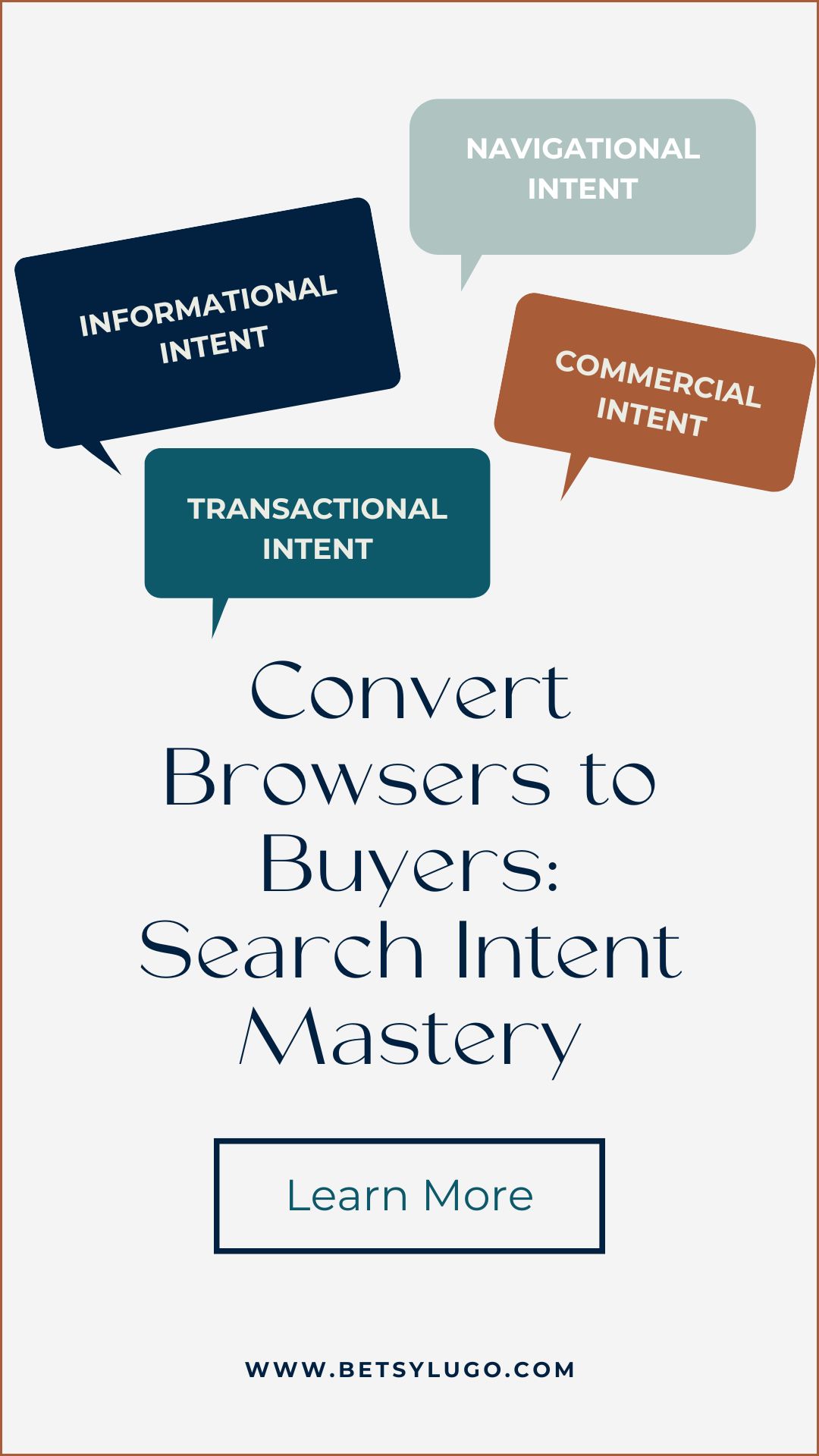
FAQs
Why does Search Intent matter for my online store?
Search intent is the reason behind someone’s online search – what they’re actually trying to accomplish. It matters for your e-commerce store because understanding why people search helps you create content that matches their needs at each stage of the buying journey, leading to higher conversion rates and better ROI (return on investment) on your content efforts.
How do I optimize for voice search intent?
Voice searches tend to be more conversational and question-based. To optimize for voice search intent, focus on creating content that answers specific questions (who, what, when, where, why, how) related to your products. FAQ sections are particularly effective for capturing voice search traffic.
How long does it take to see results after optimizing for search intent?
It takes time, this is not an overnight thing. Improvements in rankings and conversion rates can take 2-3 months or longer as search engines recognize and reward your content’s alignment with user intent.
Do I need to hire an SEO expert to implement search intent strategies?
A professional can accelerate results and take this task of your plate. However, many e-commerce entrepreneurs successfully implement search intent strategies themselves.
Start with small changes like adding buying guides, improving product descriptions to answer common questions, and creating content that matches the most common search intents in your niche.
Can one page on my website target multiple types of search intent?
For sure it’s possible to address multiple intents on one page, it’s generally more effective to create dedicated content for each intent type.
Your product pages should primarily target transactional intent, while blog posts can target informational intent.
However, you can include elements like FAQs on product pages to partially satisfy informational searchers.
